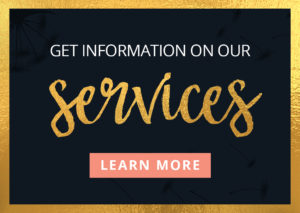How healthy is your relationship with money?
When people think of going to therapy, they often picture working through challenges like self-esteem issues, communication struggles, or relationship conflicts. But what about therapy for your relationship with money?
Money is an essential part of life, yet it’s also one of the most significant sources of stress for many people. In fact, a 2018 study from Northwestern Mutual found that 44% of people cited finances as their biggest source of stress—even more than work or personal relationships. This statistic highlights just how deeply financial concerns can impact mental and emotional well-being.
At Lincoln Park Therapy Group, we know that financial struggles don’t just exist in a vacuum—they’re often intertwined with personal values, beliefs, and emotions. That’s why financial therapy is becoming an important tool for individuals and couples who want to better understand their financial habits and make healthier money decisions.
Nicolle Osequeda Featured in Fast Company
Lincoln Park Therapy Group’s founder, Nicolle Osequeda, was recently featured in a Fast Company article, “These Are 3 Times When You Need a Financial Therapist,” where she shared insights about the emotional side of financial decision-making.
The article explores why financial therapy is valuable and identifies three key moments when someone should consider seeking therapy for financial struggles:
- When you don’t understand your “money story” and how it affects your financial behaviors.
- When you know you have unhelpful money beliefs that are holding you back.
- When financial stress is causing problems in your relationships.
Let’s explore each of these in more detail.
Understanding Your Money Story
Your relationship with money is shaped by your past—your upbringing, family values, cultural beliefs, and personal experiences. As Nicolle Osequeda explains in the article, many of us inherit financial beliefs early on, sometimes without even realizing it.
For example, if you grew up in a home where money was scarce, you may have learned to view financial security as something elusive and difficult to maintain. On the other hand, if your family equated financial success with self-worth, you might feel intense pressure to earn and save at all costs.
These ingrained beliefs, or your “money story,” shape how you view spending, saving, and financial decision-making as an adult. Without understanding the roots of your financial mindset, it can be difficult to break negative cycles or create a balanced, healthy approach to money.
Financial therapy helps individuals uncover and rewrite these money stories, allowing them to make more intentional financial choices that align with their values and goals.
When Money Beliefs Hold You Back
Even when people are aware of their money-related struggles, they often find it hard to change their behaviors. Fast Company’s article highlights a common issue: many individuals believe that wanting money is selfish or that being financially successful is inherently bad.
This belief can be especially prevalent among women. As Nicolle and other experts in the article explain, many women feel guilt about making money or believe that their finances should be used to support others before themselves. This mindset can prevent people from making smart financial decisions, investing in their future, or even asking for a well-deserved raise.
Financial therapy helps clients identify and challenge these limiting beliefs, replacing them with healthier, more empowering perspectives.

Money and Relationships: A Common Source of Conflict
Money is one of the top stressors in relationships, often leading to tension, miscommunication, and even breakups. Whether it’s unequal earning power, different spending habits, or financial infidelity, couples frequently struggle to find common ground when it comes to money.
According to Nicolle, couples often avoid talking about finances until it becomes a problem—which can lead to conflict down the road.
Financial therapy offers a structured way to address money concerns within relationships by helping couples:
- Understand each other’s money backgrounds and values.
- Improve communication around financial decisions.
- Develop a shared approach to spending, saving, and investing.
By working with a financial therapist, couples can create healthier financial habits together, reducing stress and fostering greater trust in their relationship.
How Financial Therapy Can Help
If you find yourself struggling with money-related stress, whether individually or in your relationship, financial therapy can provide clarity and support.
At Lincoln Park Therapy Group, we take a holistic approach to financial well-being, helping clients identify underlying emotional and psychological barriers that affect their financial decisions. Our team, including certified financial therapist Nicolle Osequeda, offers personalized strategies to help individuals and couples build a healthier, more empowered relationship with money.
Ready to Improve Your Financial Well-being?
If money stress is impacting your life or your relationship, we’re here to help.
Read the full Fast Company article: “These Are 3 Times When You Need a Financial Therapist.”
Simple Ways to Ease Your Financial Anxiety: Getting a handle on your money can make a big difference to ease financial anxiety.
How to Keep the Financial Peace With Your Partner: What do you do when you and your partner don’t see eye to eye on money matters?
The Key to Mingling Money in a Relationship: To combine or not combine: That’s the essential question when it comes to couples and their finances — particularly bank accounts.
Need more support? Schedule a session with one of our therapists today. We’d love to help you gain confidence and peace of mind when it comes to your financial well-being.

 Nicolle Osequeda, LMFT, is the founder of Lincoln Park Therapy Group, specializing in anxiety, depression, and relationship counseling in Chicago. As a Certified Daring Way™ Facilitator, she incorporates Dr. Brené Brown’s research into her therapy. Nicolle holds a Master’s in Counseling Psychology from the University of San Francisco and is a Licensed Marriage & Family Therapist in Illinois and California. She is a Clinical Fellow of AAMFT, a member of IAMFT, and the Financial Therapy Association. Nicolle has Gottman Method training and has taught at DePaul University, dedicated to helping individuals and couples achieve meaningful change.
Nicolle Osequeda, LMFT, is the founder of Lincoln Park Therapy Group, specializing in anxiety, depression, and relationship counseling in Chicago. As a Certified Daring Way™ Facilitator, she incorporates Dr. Brené Brown’s research into her therapy. Nicolle holds a Master’s in Counseling Psychology from the University of San Francisco and is a Licensed Marriage & Family Therapist in Illinois and California. She is a Clinical Fellow of AAMFT, a member of IAMFT, and the Financial Therapy Association. Nicolle has Gottman Method training and has taught at DePaul University, dedicated to helping individuals and couples achieve meaningful change. 

